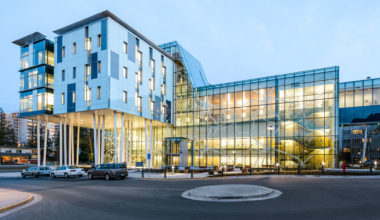According to Dr. Gary Marcus, world-renowned cognitive neuroscientist, bestselling author, and Founder of Geometric Intelligence, recently acquired by Uber, the future of artificial intelligence (AI) is tied to innovations in neuroscience. As our understanding of the brain evolves over the next decade or more, so will our ability to digitally reverse-engineer the brain.
Dr. Marcus, a regular contributor to The New Yorker and The New York Times, will share his vision for the integration of analog and artificial intelligence at a special keynote address at the upcoming NeuroFutures conference, July 9-11.
“The two most exciting things in the science and tech worlds right now are how much closer we are than ever to understanding the brain, and the advances we’re making in AI,” says Dr. Marcus. “Industry will take care of AI. But understanding AI – the psychology of it – will fall to neuroscientists.”
“Right now, we have a wealth of data about different parts of the brain and what they do … we just don’t know what to do with it. We have measurements, but aren’t yet sure how to interpret them,” explains Dr. Marcus. “AI can help us.”
“There’s such an appetite for translation of artificial intelligence and brain research topics right now,” says Dr. Timothy Murphy, Professor in the Faculty of Medicine at UBC and Academic Co-Director of the NeuroImaging and NeuroComputational Centre at the Djavad Mowafaghian Centre for Brain Health. “Having Gary in town represents an incredible opportunity for the public to engage with the latest in AI research and learn about the future of theoretical neuroscience.”
Dr. Marcus will present his talk, What artificial intelligence can learn from the brain, and vice versa, on July 9 at 6:00 p.m. (RSVP via Eventbrite to attend.)
The annual NeuroFutures conference brings together experts from across the field of neuroscience for a series of stimulating talks and posters. Join leaders in neuroscience research at NeuroFutures 2017: Brain Connectivity in Health and Disease at the University of British Columbia. The conference runs July 9 to 11, with a hands-on workshop on Brain Clearing and Expansion to follow on July 12.


